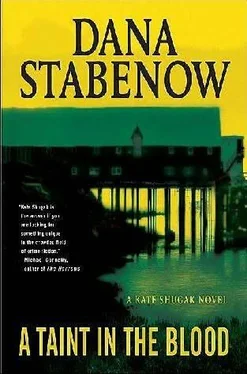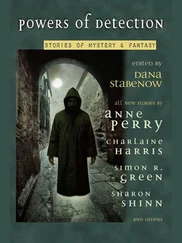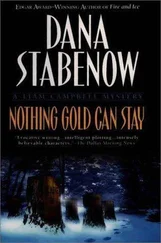The phone rang as she was finishing dinner. It was Emily. “Can you come down to our offices at four-thirty P.M.?”
“Tomorrow?” Kate said, eyes going to the clock.
“Yes. Oliver has said he can see you for half an hour.”
“I’ll be there,” Kate said.
Emily gave her the address and Kate hung up.
Oliver kept her waiting in his outer office, during which she had ample time to admire the gray walls, the maroon carpet, the teak furniture, and the abstract art. She didn’t admire it, actually, but she had time to.
Emily didn’t come out to greet her. The receptionist, a woman in her late thirties who had artfully arranged hair and was wearing a trim black suit that must have cost most of three months’ salary, was seated at a large desk with a pile of what Kate instantly recognized as court documents. Occasionally, the phone would ring and the receptionist, whose nameplate announced her to be one Miss Belinda Bracey, would answer it in mellifluous tones. Every now and then, she would look at Kate and smile. Kate would smile back. Now and then, the sound of footsteps came from that part of the office suite at whose entrance Miss Bracey was standing guard, and the sound of voices in muted conversation. It went like that for fifteen minutes, until the outer door opened and Oliver Muravieff stepped into the room wearing a suit that cost even more than Miss Bracey’s. He had a slim cane, ebony, with brass fittings, which he leaned upon heavily. The brass was only marginally shinier than his shoes, which matched his suit perfectly. His thick black hair grew straight back from his forehead, ending at a recently trimmed line just above his collar.
Maybe Oliver Muravieff and Associates had a personal shopper on staff.
In spite of the window dressing, Muravieff brought the aura of a street fighter into the room with him. He was maybe five four, five five, and thick from the neck down. He worked out with weights, Kate would bet money on it, to such effect that his biceps pushed his arms out from his sides like an ape’s. Making up for the gimpy leg, Bobby Clark would say. Muravieff moved well, belying his bulk with purpose and strength, if not with grace, his step quick and firm, his movements deft and sure.
Instinctively, Kate slid forward on the couch and pulled her feet in so that her weight would be over them if she had to move fast. The movement caught the corner of Muravieff’s eye and he turned to look at her. His face was square and blunt-featured. He had a long nose with a flat bridge, heavy black brows, and deep-set brown eyes. His gaze was steady and assessing, and he was smart enough not to dismiss her on first sight, even if she was wearing jeans.
“This is Ms. Shugak, Mr. Muravieff,” Miss Bracey said in a low murmur, and dropped her voice even further to add, “Your four-thirty.”
“Your four-forty-five now,” Kate said, and smiled.
There was a brief silence. “Of course,” Muravieff said smoothly. “I’m Oliver Muravieff, Ms. Shugak.” He walked past the receptionist’s desk and opened a door in the wall. “Will you come with me to my office?”
Kate followed him through the door, down a hallway, and through an office with three women in it typing at computers, one of whom pursued him into his office with a document for his signature.
“Have a seat,” Muravieff said, nodding at the chair sitting on one side of a vast expanse of teak. He signed the document and shed his jacket, handing both to the woman. “May I offer you some coffee, Ms. Shugak?”
“Certainly,” Kate said. “Cream and sugar, please,” she said to the woman.
“Black,” Muravieff said. “Thanks, Nancy.”
Nancy went out, soft-footed. “I apologize for being so late,” Muravieff said. “I was held up in court.”
“That’s quite all right,” Kate said, and wondered at the sudden graciousness of her grammar.
“Shugak,” Muravieff said. “Any relation to Ekaterina?”
“Why, yes,” Kate said.
“I believe my mother may have known her.”
“So she tells me,” Kate said.
An awkward silence fell, broken by Nancy coming back with the coffee, served on a silver tray in porcelain cups and saucers, with a matching sugar bowl and creamer. Kate doctored her coffee, Muravieff didn’t, and they both settled back in their chairs. Muravieff barely sipped his before placing it to one side. “So, Ms. Shugak,” he said, “how many I help you?”
“Your sister, Charlotte, has hired me to look into your mother’s case.”
Muravieff’s expression didn’t change. “So Emily has informed me. It was not a wise decision on Charlotte’s part.”
“Why is that?”
“Because my mother has no case, Ms. Shugak. She was tried, convicted, and sentenced to life in prison.”
“Your sister believes otherwise,” Kate said. “She believes your mother was wrongly convicted, and she wants me to find the evidence necessary to prove it.”
His eyes went flat, and for the first time Kate saw the pit bull lurking inside every decent trial attorney. “Charlotte is mistaken. My mother even admitted doing it.”
“Your mother admitted her guilt?” Kate said.
Oliver nodded. “Yes.”
“When? There is no mention of it in the court records.”
“Privately, to us, after she was convicted and she knew lying wouldn’t keep her out of jail.”
“To us‘? Meaning Charlotte and yourself?”
“Yes. They took us in to say good-bye to her after the verdict. She told us then. So you can see for yourself, Ms. Shugak, my sister has sent you on a fool’s errand.”
“That’s something you will need to take up with your sister,” Kate said, setting her cup and saucer down. “May I ask you some questions?”
“I don’t want to talk about that time.”
“It was thirty years ago.”
“It was yesterday,” Muravieff said.
A brief silence. “Well then, did your mother say why she did it?” Kate said.
“What does that matter? She killed her own son. She would have killed me. She admitted as much to me, face-to-face, the last time I saw her.”
“You haven’t seen her since?” Kate said.
“She tried to kill me,” he said. “She told me so. Why would I want to see her ever again?”
Kate regarded him in silence. He met her gaze steadily. “The prosecution held that your mother tried to kill you both for the insurance money.”
“Yes.”
“Was she really so in need of money?”
“I suppose she was.”
“A Bannister? Out of money?”
He said nothing.
“Charlotte told me that you and she went to live with your uncle afterward.”
“Yes.”
“He or your grandparents couldn’t have helped your mother financially, whatever trouble she might have been in?”
“Look, Miss Shugak,” he said, “I don’t know what her problem was. All I know is what she said. You worked for the DA for five and a half years. You certainly know the difference.”
“I do,” she said. And wasn’t it interesting that he knew of her previous employment. “Did you know your mother has cancer?”
He stared at her. “No,” he said finally. “I didn’t know that.”
Nancy tapped at the door. “Mr. Muravieff, I’m sorry to interrupt, but Mr. Ellefson is on line two.”
“Not a problem,” Kate said. “Mr. Muravieff and I are done here. Thank you for your time, Mr. Muravieff. May I call if I have any further questions?”
“Certainly,” he said, and handed her a card.
Interesting, she thought as she walked out of the building, that Oliver’s chosen profession was that of a defense lawyer, a job designed to get criminals off. An Alexander Ellefson had been the second story on last night’s ten o’clock news, something regarding a little disagreement he’d had in the parking lot of a local bar, involving three other men and a.38 Special.
Читать дальше












